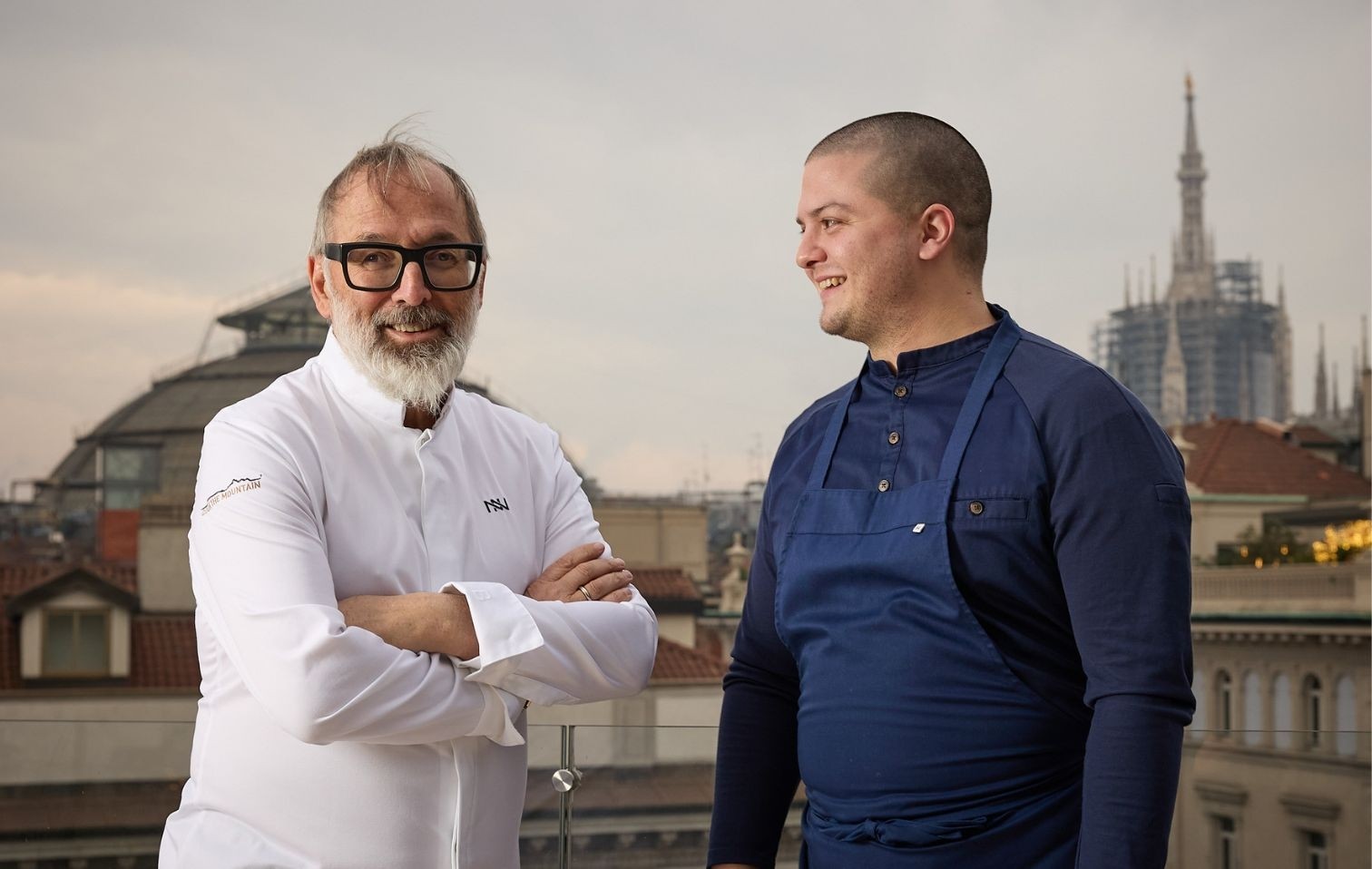The time of taste, the measure of ethics: Horto is not just a restaurant, but an important project that combines sustainability, aesthetics, and gastronomy in one of Europe's most dynamic cities.
Photo credits: Christian Bazzo
In the bustling heart of Milan, on the seventh floor of the The Medelan building in Via San Protaso, stands Horto Restaurant: a suspended oasis where time slows down, nature reclaims urban space, and ethics meets signature cuisine. Conceived by Osvaldo Bosetti and Diego Panizza and guided in its culinary strategy by chef Norbert Niederkofler, Horto is much more than a restaurant: it is a concrete manifesto of the “ethical hour,” a philosophy that values time, seasonality, short supply chains, and environmental and social sustainability.
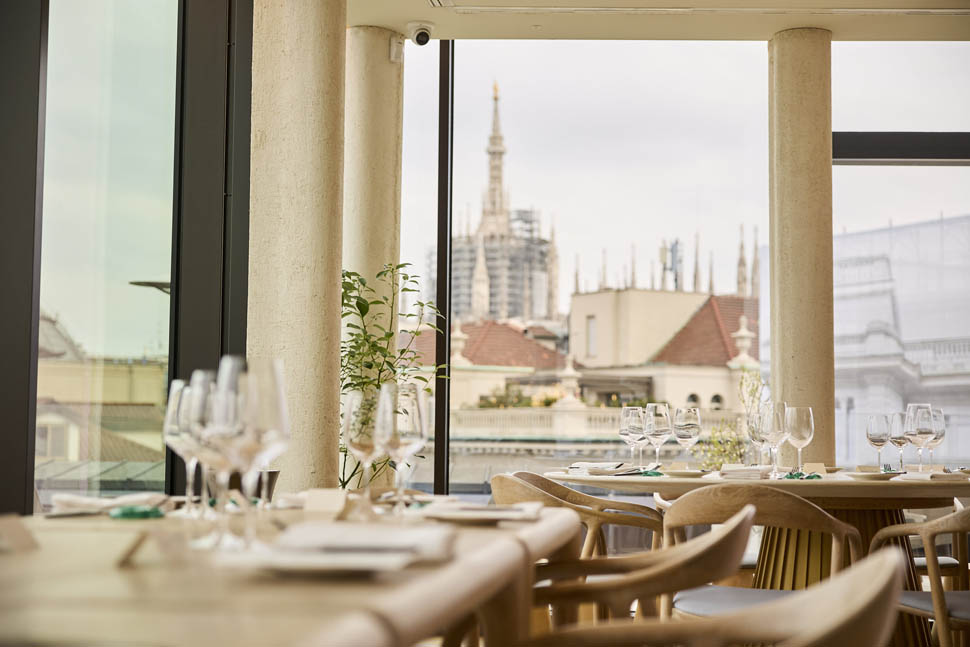
At the helm of the kitchen brigade is Alessandro Pinton, a young Executive Chef who, since January 2025, has been creating the menu and coordinating the work in the kitchen with vision and consistency. Born in 1998, Pinton brings with him solid experience gained in some of Italy's most prestigious restaurants, from Le Calandre to Il Luogo di Aimo e Nadia, and perfectly embodies Horto's founding values: respect for the territory, attention to seasonality, and sustainable creativity. Alongside sous chef Manuele Garello, Pinton gives concrete form to the idea of ethical cuisine developed with Niederkofler, combining refined technique, contemporary sensibility, and a deep-rooted appreciation of authentic flavors.
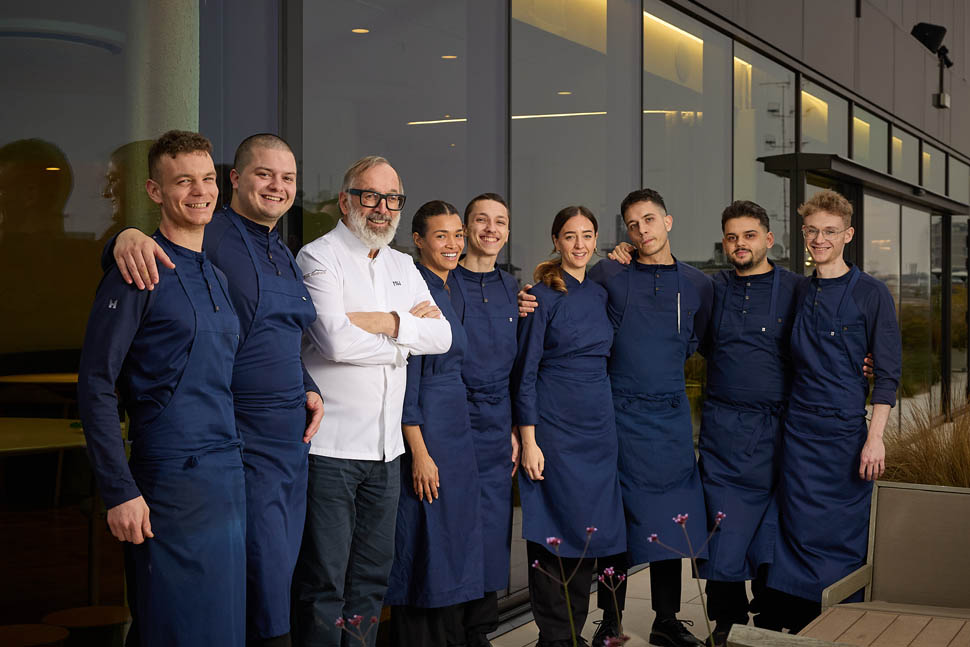
Horto is a place where every detail—from the sustainable architecture using recycled materials to the botanical terrace designed to change with the seasons—conveys a clear message: live and eat consciously. The restaurant has been awarded a Michelin Star and a Green Star for sustainability in 2024 and 2025, reflecting an approach that combines gastronomic excellence and respect for the environment. Here, you can experience a delicate balance between tradition and transformation, design and nature, food and culture.
The “ethical hour”: a new measure of sustainable time
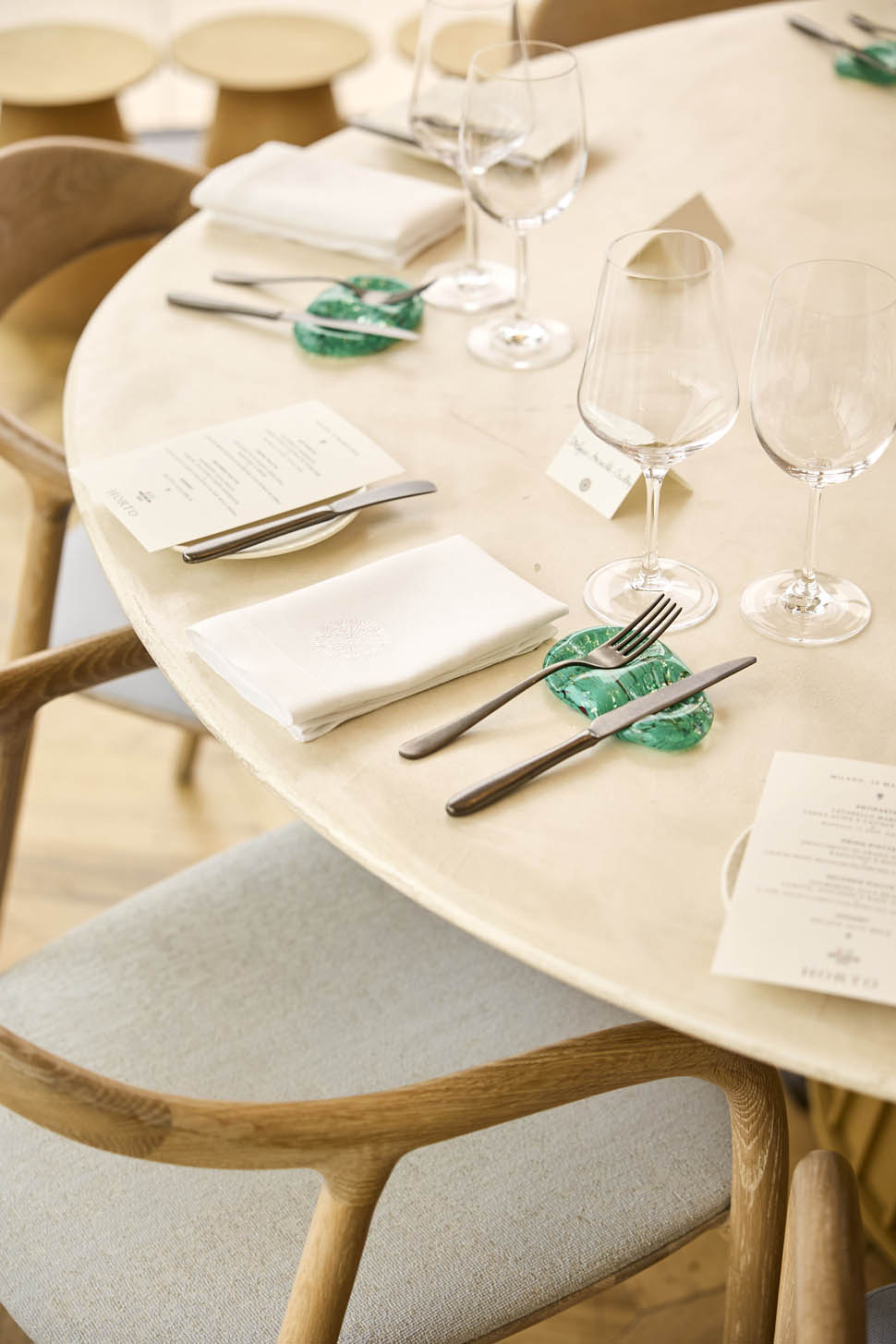
At the heart of Horto's philosophy is a revolutionary idea: the ethical hour, a concept developed by co-founders Osvaldo Bosetti and Diego Panizza to rethink the value of time through an ethical, sustainable, and relational approach. In a fast-paced world, Horto invites you to slow down, reconnect with the local area, and rediscover what is close and authentic. Every choice—from the selection of ingredients to the design of the spaces—reflects this principle. The ethical hour translates into a short and transparent supply chain that favors small local producers within an hour's radius of Milan, in a solidarity network structured as a semi-consortium that optimizes transport and reduces environmental impact. In the kitchen, too, respect for time is evident in the use of often overlooked ingredients, such as trout and char, and in the creative use of every part of the product in a no-waste approach.
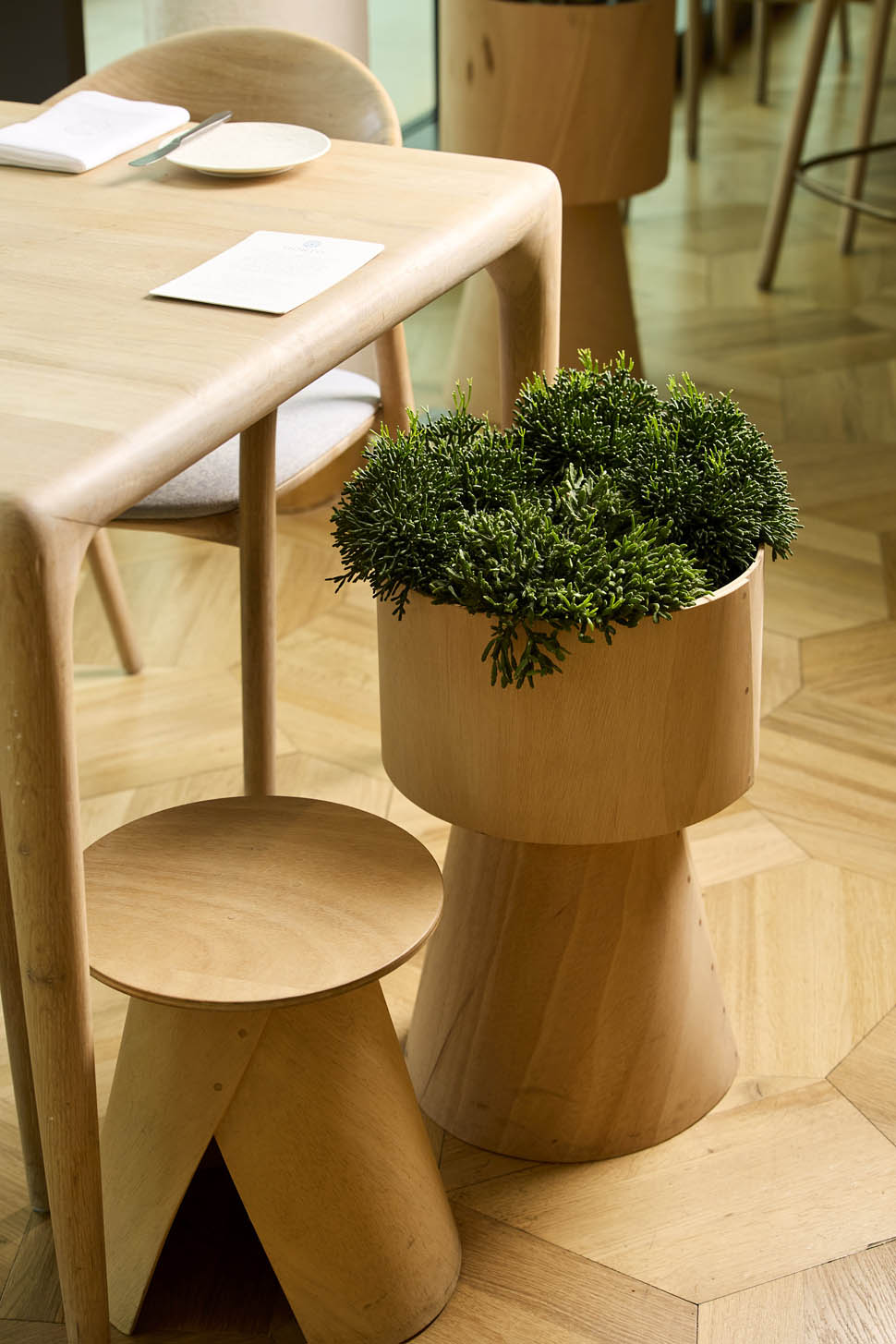
The concept of ethical time is also reflected in the architecture and materials, which have been carefully selected to tell a story of reuse and sustainability. The floor of the dining room is made from old vinegar barrels, while the walls are covered with rice husk plaster, an agricultural waste product transformed into a noble material. The Chef's Table, the true heart of the restaurant, is a unique piece: an ancient Lebanese cedar tree felled by a storm in Puglia and salvaged to become a symbol of resilience and natural beauty.
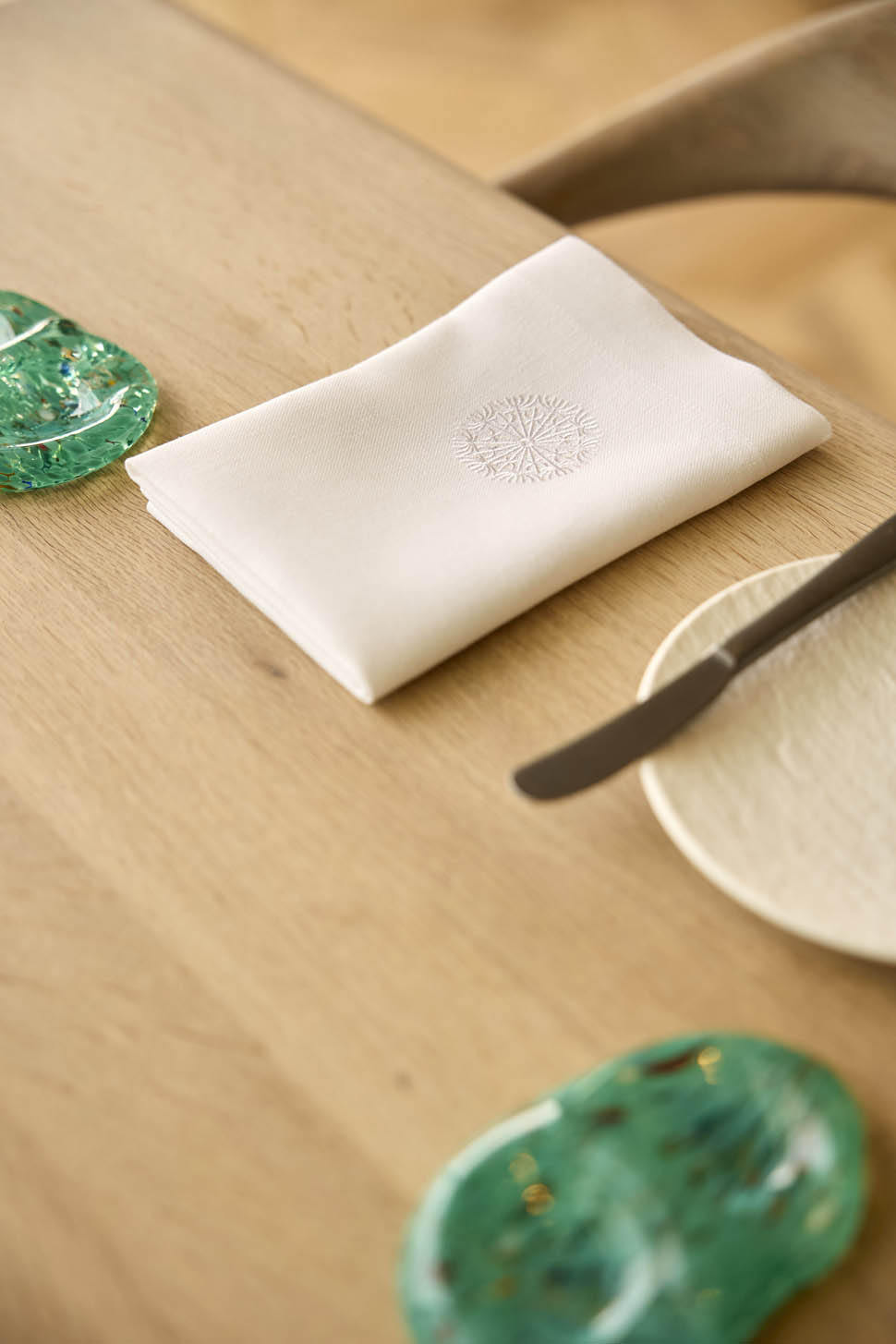
The ethics of time also extend to the well-being of staff: Horto is closed on Sundays and major holidays to ensure that those who work there can enjoy quality personal time. Similarly, the decision to be a bottle-free restaurant goes beyond environmental sustainability: every liter of water served contributes to the construction of wells in Africa through the B.Water Mission project, supported in collaboration with BWT Italia and the AQUA Pearls Foundation.
The tasting menu: a journey through land, fresh water, and seasons
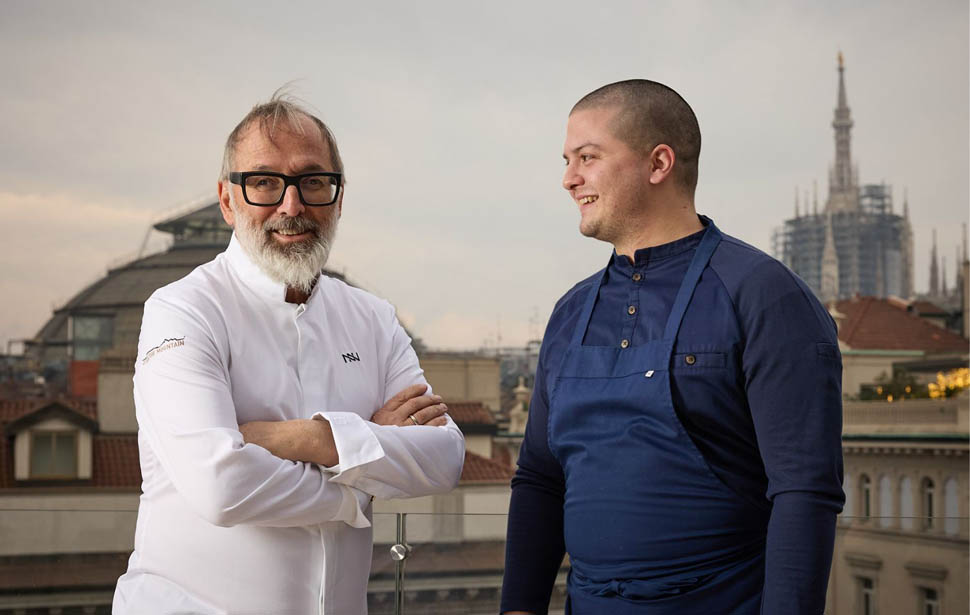
The Horto experience begins with a taste that is a statement of intent: young peas, nepitella whipped cream, and sturgeon caviar. A dish in which the sweetness of spring meets the aromatic freshness of nepitella and the elegant flavor of caviar, offering a surprising and balanced start.
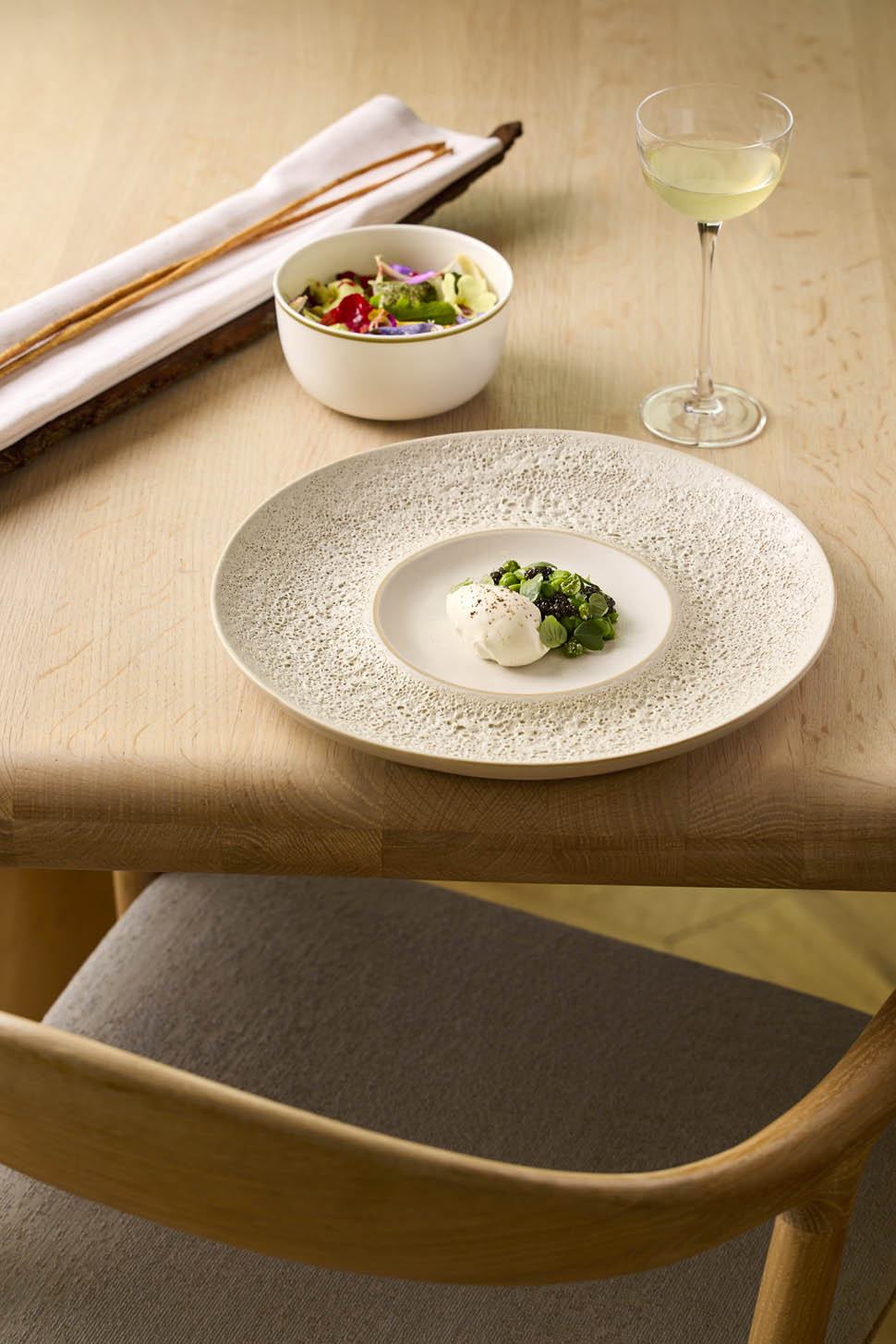
Next up is an intense dish rich in contrasts: Veal tongue in red wine, Parisian potatoes, and pomegranate. Here, the tenderness of the meat is enhanced by the sweet acidity of the pomegranate and the gentle rusticity of the potatoes, creating a balance of flavors that evokes traditional cuisine with a refined twist. The third dish, Bottoni stuffed with duck and juniper broth, is an immersion in the depths of flavor: the thin, perfect pasta encloses a strong, enveloping filling, amplified by the balsamic intensity of the broth. A dish that warms, tells a story, comforts, and encapsulates the essence of Horto.
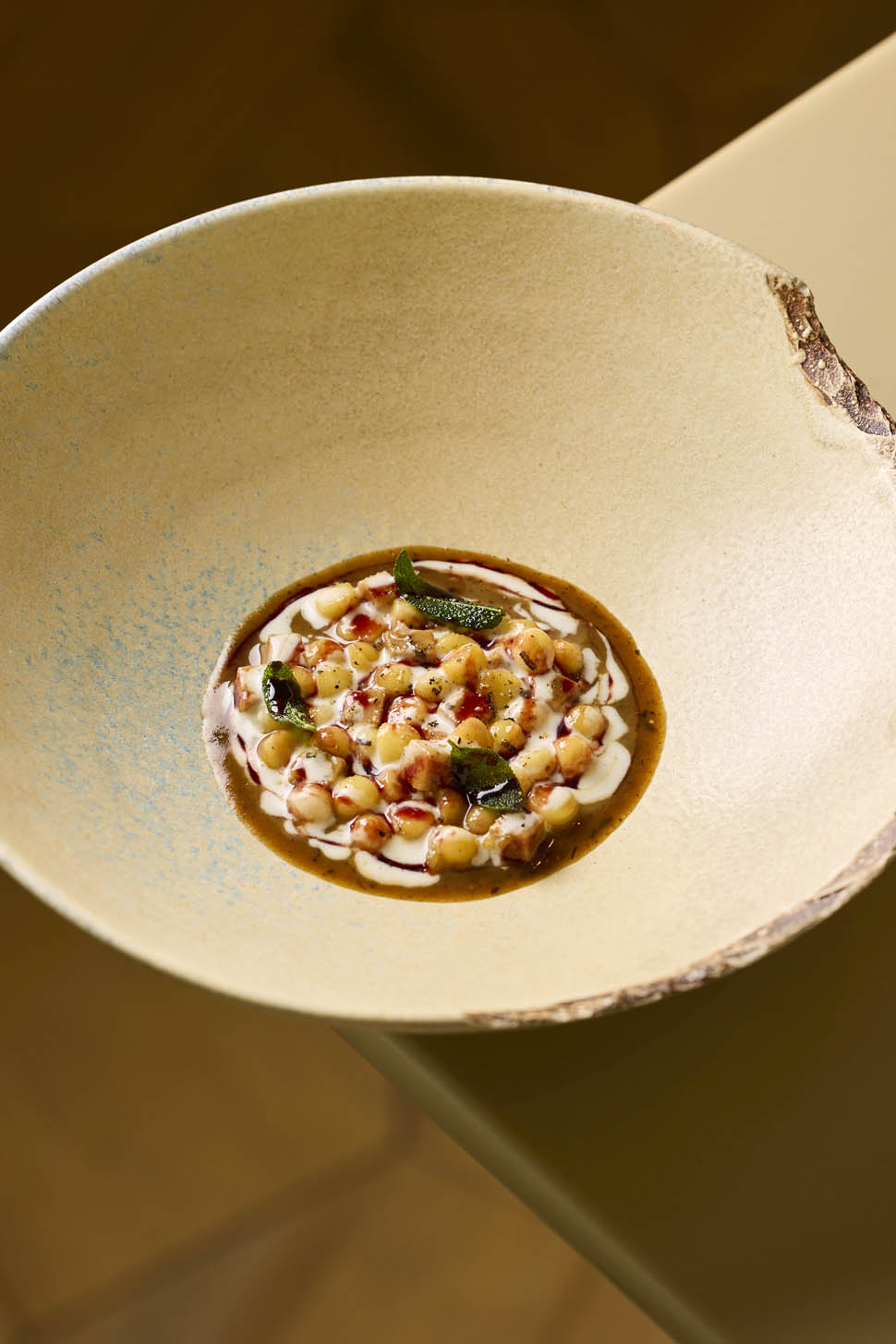
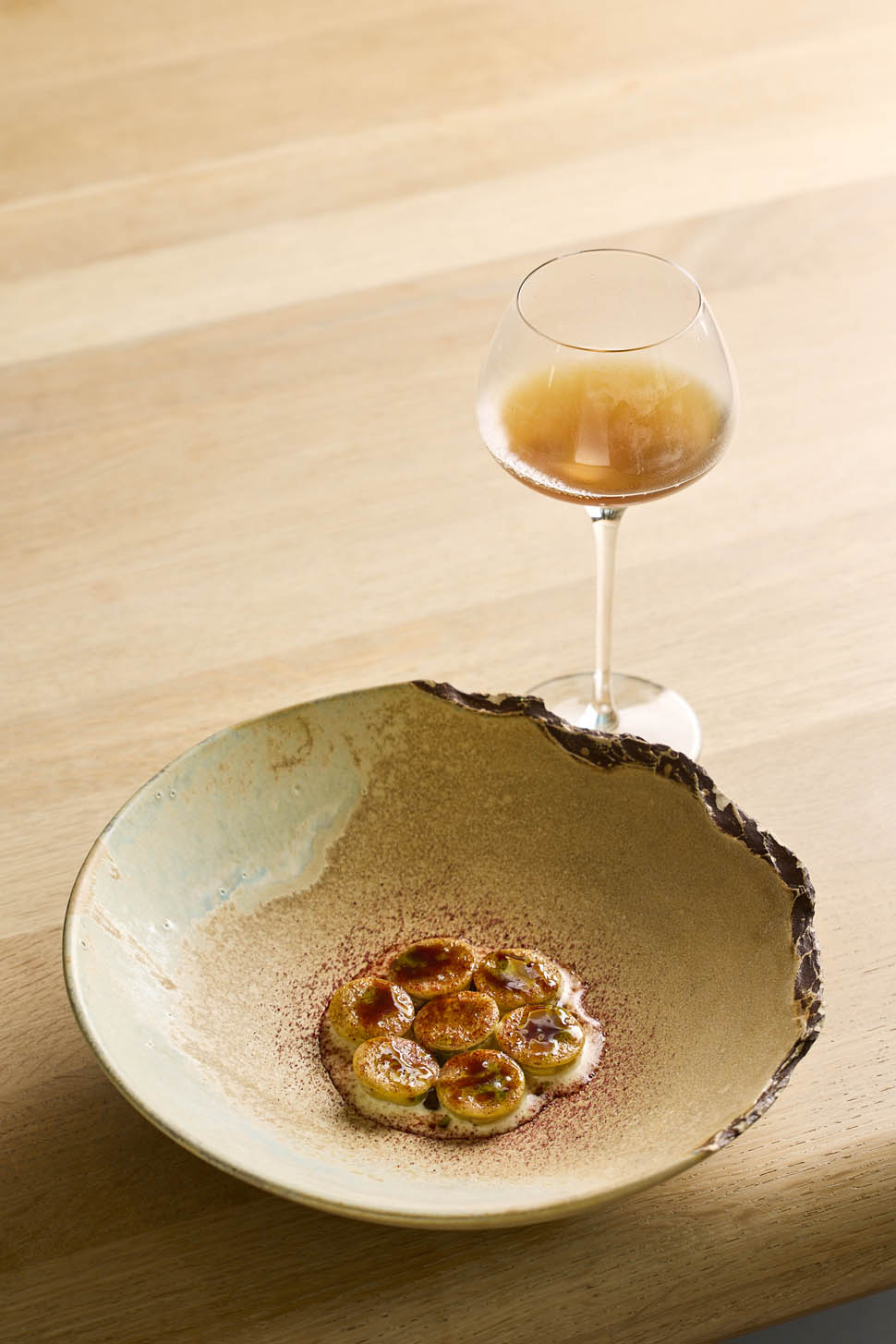
Then comes the sweet sea: Rainbow trout with mixed green beans from the restaurant's gardens and agresto. Trout, an often overlooked fish, finds its revenge here, enhanced by precise cooking and the fruity acidity of agresto, in a dish that celebrates lightness and balance.
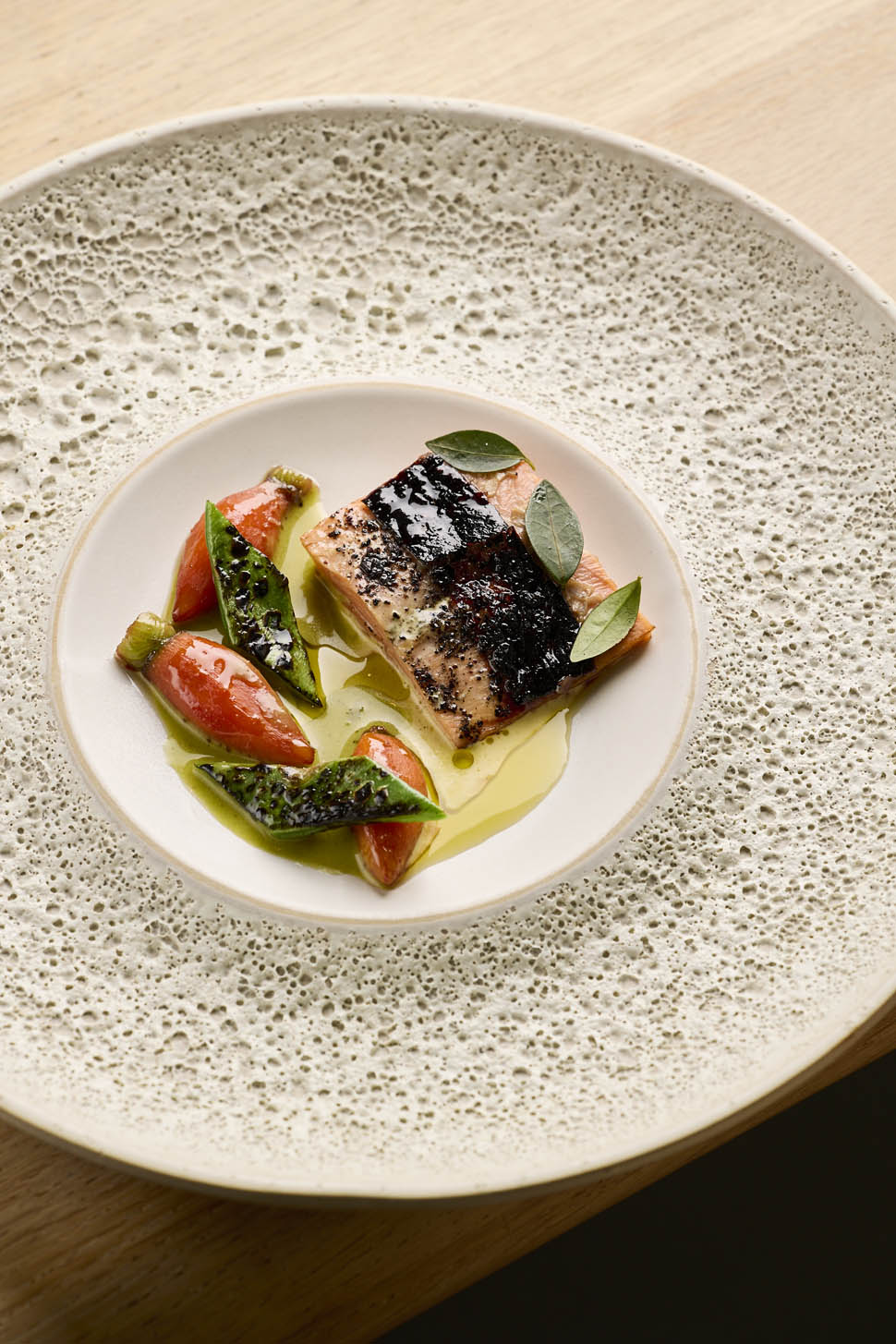
The dessert is an ode to reinvented simplicity: Barley, caramel, and clouds of milk. A delicate interplay of textures and light sweetness that ends the meal with elegance and poetry, leaving a feeling of lightness and completeness. This dessert is also a tribute to the mountains, a source of deep inspiration for Horto: it recalls their colors, atmosphere, and purity, changing shades and ingredients according to the season and the availability of raw ingredients, in perfect harmony with the restaurant's philosophy.
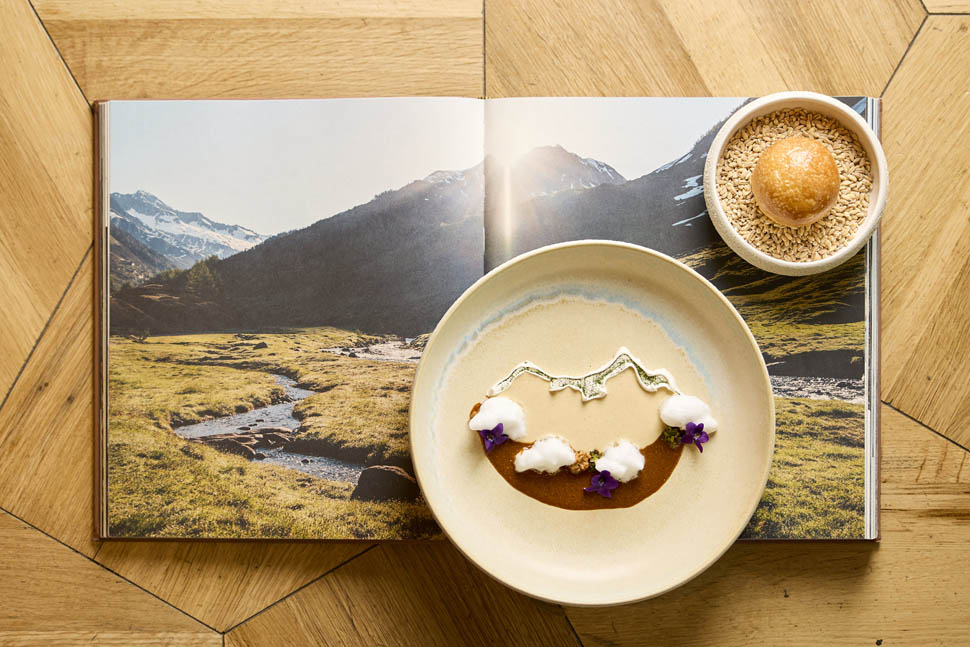
“Slowing down is a revolutionary act”
Diego Panizza, co-founder of Horto, explains how a restaurant in the heart of Milan manages to convey a sense of calm, awareness, and respect for the environment. In an urban setting often dominated by haste, Horto is a refuge where time slows down and every choice—from the dishes to the décor—speaks the language of sustainability. “Today, slowness is a countercultural act,” says Diego. "We wanted to create a place where the quality of time spent has real value. In the kitchen, this means following the rhythm of nature, using only seasonal ingredients sourced from small local producers located within an hour or so of us. But it is also a slow design process: every material, every element of the space has been carefully chosen, often recycled, always designed to last and interact with its surroundings."
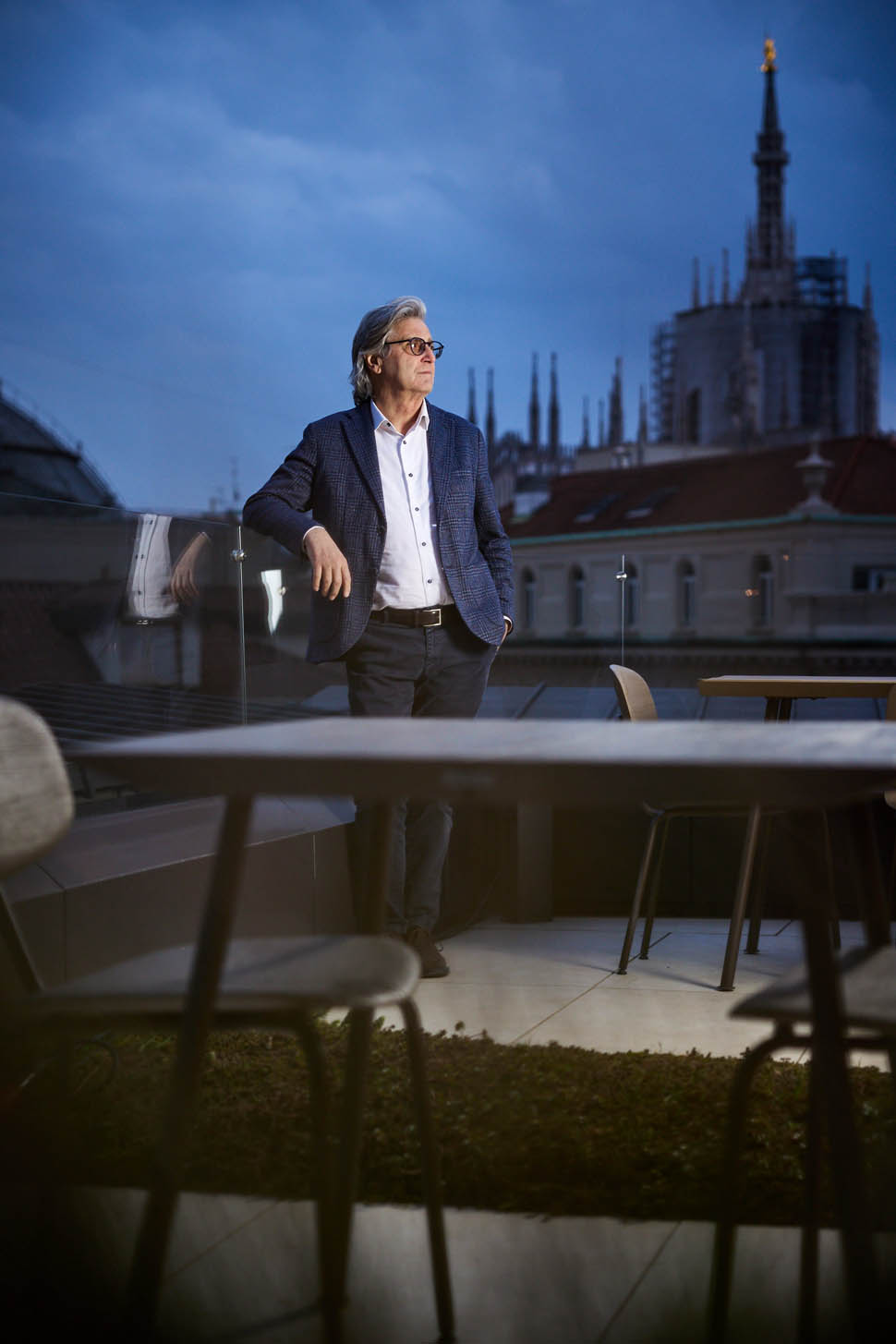
This can be seen in many details: the wooden floor made from disused vinegar barrels, the walls covered with rice husks – an agricultural waste material – and the large Lebanese cedar tree that serves as the Chef's Table, salvaged after a storm. "For us, sustainability is not just about reducing our environmental impact. It is also about paying attention to the life cycle of what surrounds us, the dignity of those who produce, and the well-being of those who work with us.“ Another pillar of Horto's identity is the short supply chain: ”It is a cultural choice. We want to know our producers and talk to them. We don't just buy raw materials, we build relationships based on trust. This makes the experience more authentic for those who come to eat here." One of the most distinctive aspects of Horto is its no-waste policy. Nothing is thrown away: peels, stems, and leaves are fermented, made into broths, and infused. The same concept applies at the bar, where kitchen scraps are turned into kombucha, syrups, and cocktails. “It's a way to give value to everything, to educate the palate, and to reduce waste with creativity.”
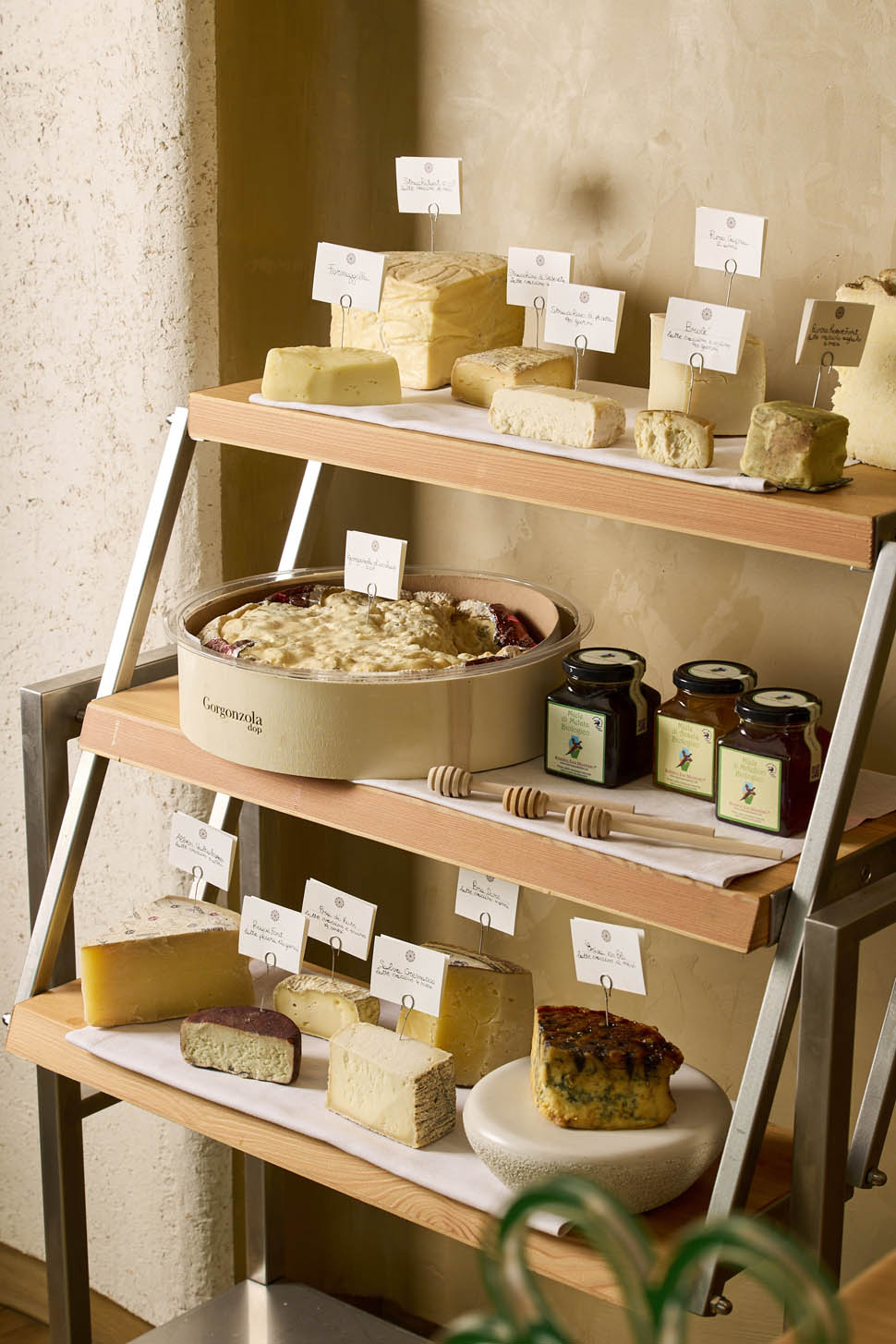
And then there is water. Horto is one of the few completely bottle-free restaurants: “We have given up bottled water, even at the cost of losing important sponsors. Today we filter and mineralize everything on site, reducing the impact of glass and contributing to social projects with B Water Mission. Even a simple gesture like this can have great value if done consistently.” Finally, Horto's role in Milan: “We are in a city where seasonality is now recognized, but there is still a lot to do in terms of gastronomic culture. We work to educate without ever being didactic, trying to make every dish a story, every ingredient an ethical choice.” The future? “Innovation, energy self-sufficiency, increasingly virtuous supply chains. And, perhaps, new openings. But always with the same spirit: a restaurant that speaks of nature, people, and time. Time that today, more than ever, needs to be respected.”
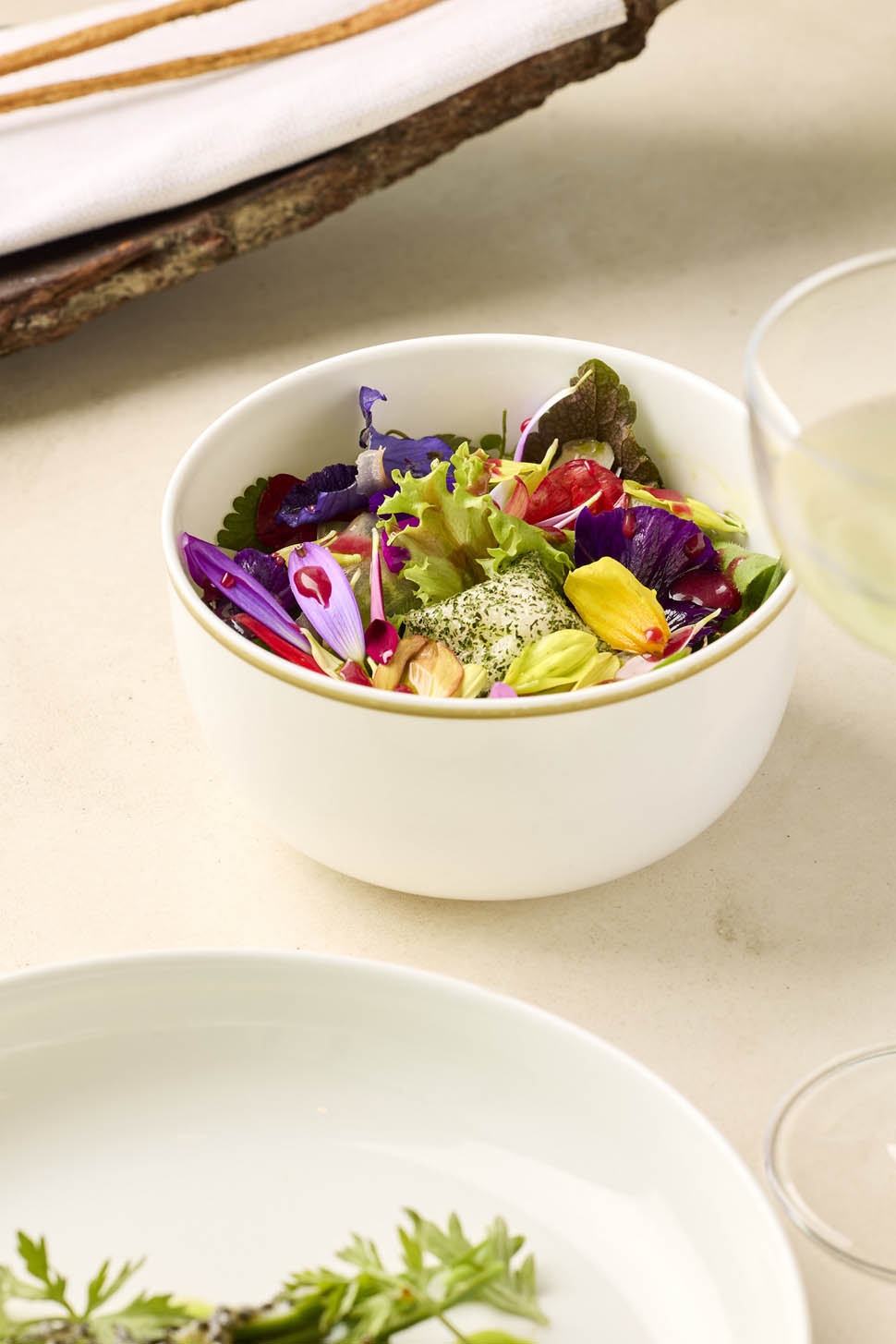
A concrete utopia in the sky above Milan
Horto is not just a restaurant, but a visionary project that combines ethics, aesthetics, and gastronomy in one of Europe's most dynamic cities. Here, amid refined dishes, green terraces, and recycled materials, you will rediscover a way of living and eating that dares to slow down, listen, and respect. An experience that invites you to reflect on how, even in the kitchen, you can make a difference.
CONTACTS
Address: Via San Protaso, 5 Milan (MI)
Phone: +39 02 36517496
Email: CIAO@HORTORESTAURANT.COM
Instagram: @hortorestaurantmilano
